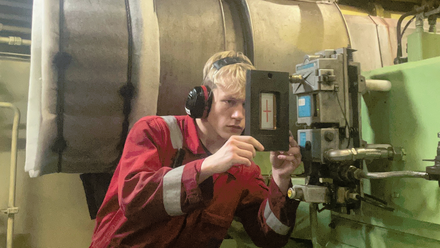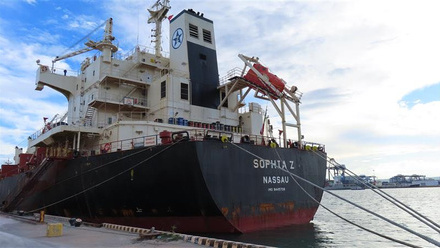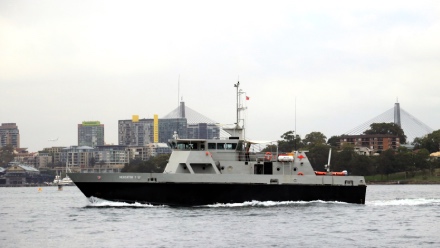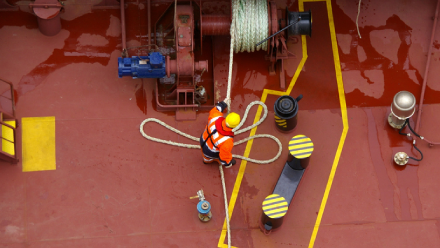All at sea: new social enterprise launched to help tackle mental health
The unique maritime environment needs specialist mental health provisions, with a community interest company the latest to tackle seafarer wellbeing.
We live in troubled times and those at sea are often on the frontline. Houthi attacks on international shipping in the Red Sea have forced a major shift in global trade flows, resulting in longer voyages – the Cape of Good Hope route adds about 10 days – but also increased uncertainty, risk and worry for seafarers and their families.
All of this grows the burden on seafaring, a profession already recognised as being mentally, emotionally, and physically stressful at the best of times.
“Mental health is now on the agenda, but we still have a long way to go,” explains Consultant Clinical Psychologist Dr Pennie Blackburn, who has launched Waypoint Maritime, an enterprise with profits reinvested to further its social objectives.
According to Dr Blackburn, Waypoint Maritime is the first not-for-profit company established for maritime mental health. “One of the problems we have is that very few mental health professionals have a background in maritime, which has its own unique challenges,” she says.
These include living and working with the same people for extended periods in a contained space, along with social isolation, long hours, stress, fatigue, and poor living and working conditions, all of which can contribute to mental health issues, such as depression, anxiety, and burnout.
“Many of the things we tell people to do to help their mental health, such as going for coffee with a friend or a long walk, are things that are just not available on a ship,” says Dr Blackburn, who is the daughter of a master mariner and has experienced life at sea as well as working for many years supporting shipping companies and seafarer welfare charities.
Dr Blackburn advice for shipping companies is to bring in mental health professionals rather than trying to resolve problems themselves. “There are some quick wins, but mental health issues can be super complicated, and you need that professional evidence-based practice adapted to the context of the industry,” she confirms.
Identifying the stress points
There are validated tools that can help measure wellbeing, and being aware of risk factors for poor mental health – one study found seafarers who are single or under the age of 30 are more at risk – means extra support can be put in place to pre-empt any problems. Dr Blackburn advises companies to undertake a stress risk assessment to identify the pinch points within their specific operational needs.
“Oil and gas companies have crews that only go to offshore loading points and never see land and they will have very different stressors to companies that do frequent port calls, which bring a different type of pressure,” she confirms. “Companies need to identify what stressors can be reduced and what processes and procedures can be put in place to help.”
A hierarchical culture which can include bullying and harassment is another significant mental health stressor. Speaking to IMarEST in late 2023, Captain Ann Pletschke, an Emotional Support Volunteer and Operations Assistant at the charity Safer Waves, which supports merchant seafarers who have experienced sexual violence or gender discrimination at sea, said sexual harassment and gender-based bullying is a significant problem in the industry.
There are many practical solutions shipowners can utilise to improve seafarer wellbeing in general: better recreation and health facilities, access to good quality food, better living accommodation (including reduced noise and more space) and, importantly, improved connectivity so seafarers can stay in touch with family and friends. Shorter shifts, improved shore leave, and better pay can also help alleviate fatigue, isolation and stress while fostering a corporate culture that doesn’t tolerate bullying and harassment can improve overall morale.
And clearly some of these businesses are taking the issue seriously, with the long-running Mission to Seafarers’ Happiness Index showing an uptick in wellbeing in the first quarter of 2024, reversing a full year of decline reported in 2023. The positive change was due to enhanced financial security through fair wages and timely payments, better crew relationships and enhanced connectivity to help communication with loved ones.
There’s still room for improvement, however, with challenges remaining around work-life balance issues such as extended contracts and limited shore leave, which contribute to excessive workloads, stress, and fatigue. Worryingly there are persistent allegations of fraudulent working hours reporting, resulting in inadequate rest periods and compromised safety standards. According to the Mission, seafarers are increasingly expressing unease and scepticism toward the accuracy of reported working hours but are reluctant to speak out.
The social crew and tackling the taboo
Companies also need to recognise the extent to which the gradual encroachment of commercial pressures has changed the nature of life at sea over time, with reductions in staffing levels, shore leave and communal recreation activities squeezing opportunities to build connections with fellow crew members.
“We need to ask how we put some of this back or introduce alternatives so crew can interact,” says Dr Blackburn. “Social relationships on board are really important to wellbeing.”
Creating these opportunities to build social networks also helps underpin safety at sea according to Dr Blackburn. “When you have those connections, you’re more likely to have each other’s back and it helps with better adherence to safety procedures and practices.”
Above all, she claims, building a sense of social cohesion can go a long way to addressing one of the biggest challenges to mental health: stigma.
“People are more aware of mental health but there’s still a prevailing belief that if you shared your concerns, you could lose your job or miss out on promotion opportunities,” says Dr Blackburn. “This is something a lot of people have expressed to me and until we address this, and treat mental health the same way we do physical health, we will not overcome this stigma.”
The key change needed to make people feel safe to reach out for help is by having clear statements around mental health with transparent policies and trusted procedures in place, however. “When seafarers understand there’s a trusted and confidential process that will be followed, and that there’s a route for them to return to work, then they will be more likely to reach out for help,” concludes Dr Blackburn.
If you or anyone you know are experiencing mental health issues at work, you can reach out to the following:
Waypoint Maritime, The Mission to Seafarers, Safer Waves, The Seafarers' Charity
IMarEST is considering how to rejuvenate the work of the Seafarer Mental Health and Wellbeing SIG, and is working with the Guild of Benevolence to see how the wellbeing of seafarers and other marine professionals can be protected through dedicated support and resources. Look out for more details in the coming months.
Image: vector graphic depicting mental health at sea; credit: Shutterstock






